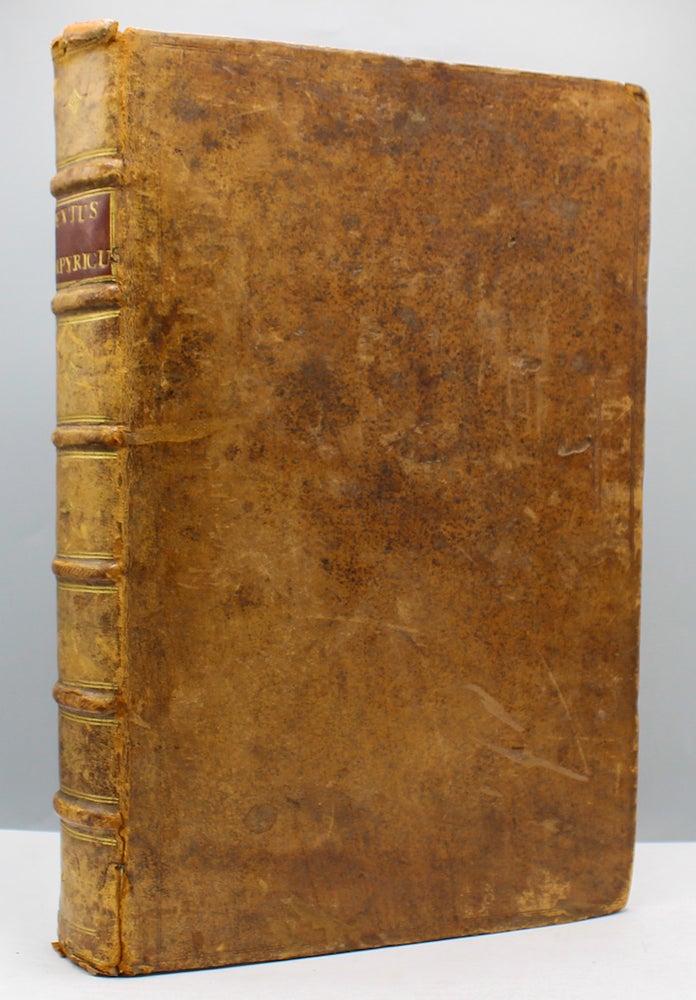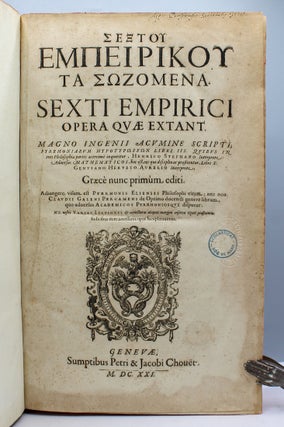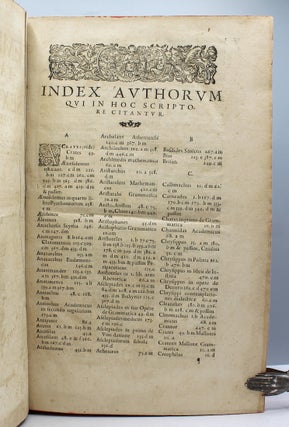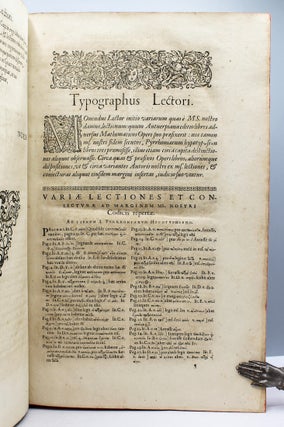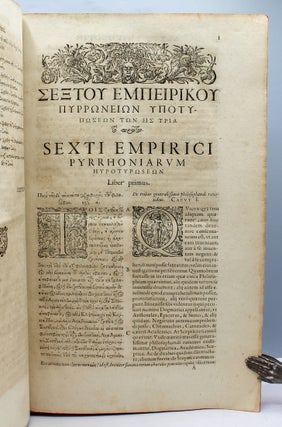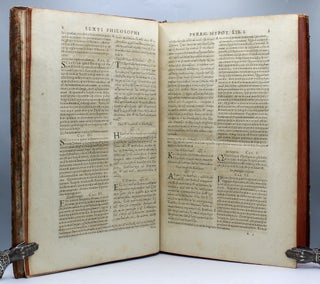Opera quae extant. Magno ingenii acumine scripti; Pyrrhoniarum hypotyroseon(Greek) Libri III. Quibus in tres Philosophiae partes acerrimè inquiritur, Henrico Stephano Interprete: Adversus Mathematicos, hoc est, eos qui disciplinas profitentur, Libri X. Gentiano Herveto Avrelio Interprete. Graecè nunc primùm editi. …MS. nostri Varioas Lectiones & coniecturas aliquot margini insertas Operi praefiximus.
Genevae: Sumptibus Petri & Jacobi Chouët, 1621. First edition of the original Greek of the collected works of Sextus Empiricus, the single most import author in the history of skepticism, whose writings determined the course of modern thought, influencing such pivotal thinkers as Bruno, Montaigne, Descartes, Hume an Hegel. Sextus Empiricus's three known works are the Outlines of Pyrrhonism and two distinct works preserved under the same title, Against the Mathematicians, one of which is probably incomplete. Text in double columns, in Greek and Latin. Binding extremities lightly rubbed, covers show some wear and a few scuff marks. Light browning throughout. Old library rubberstamp and embossed stamp on title-page. A very good copy. Contemporary calf. Gilt spine with burgundy morocco label, edges stained red, marbled endpapers. Folio. [20], 168, 521, [41, index] pp. Item #16561
"As the only Greek Pyrrhonian sceptic whose works survived, he came to have a dramatic role in the formation of modern thought. The historical accident of the rediscovery of his works at precisely the moment when the skeptical problem of the criterion had been raised gave the ideas of Sextus a sudden and greater prominence than they had ever before or were ever to have again. Thus, Sextus, a recently discovered oddity, metamorphosed into "le divin Sexte", who, by the end of the seventeenth century, was regarded as the father of modern philosophy. Moreover, in the late sixteenth and seventeenth centuries, the effect of his thoughts upon the problem of the criterion stimulated a quest for certainty that gave rise to the new rationalism of René Descartes and the "constructive skepticism" of Pierre Gassendi and Martin Mersenne." (Popkin, Skepticism, p. 18)."
This work appeared in several variants, the present one, printed in Geneva by the Chouet Brothers, one printed in Paris, and one printed in Orléans by the Chouet brothers, and one printed in Paris by Abraham Picard. All are uncommon.
Price: $7,900.00



